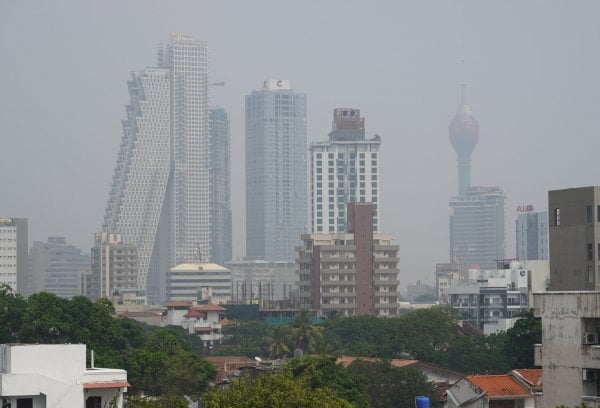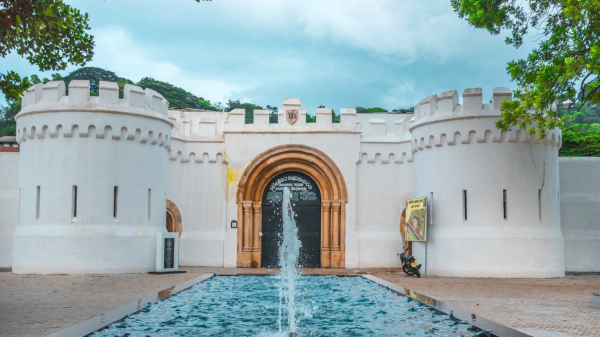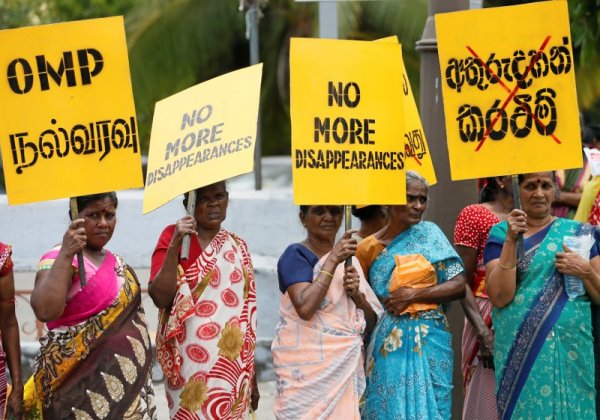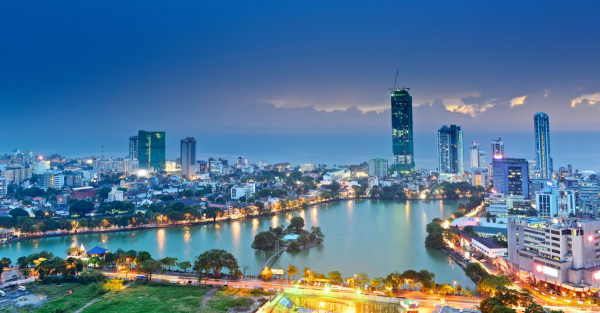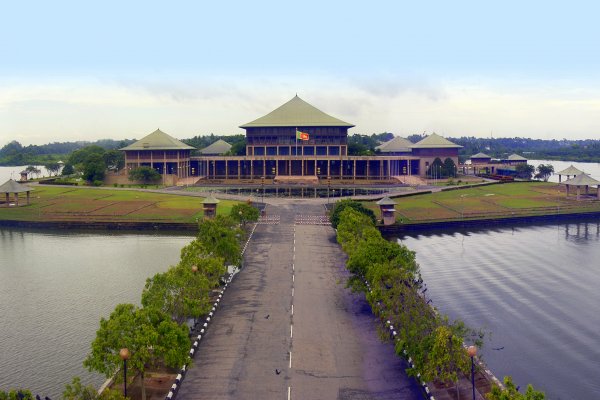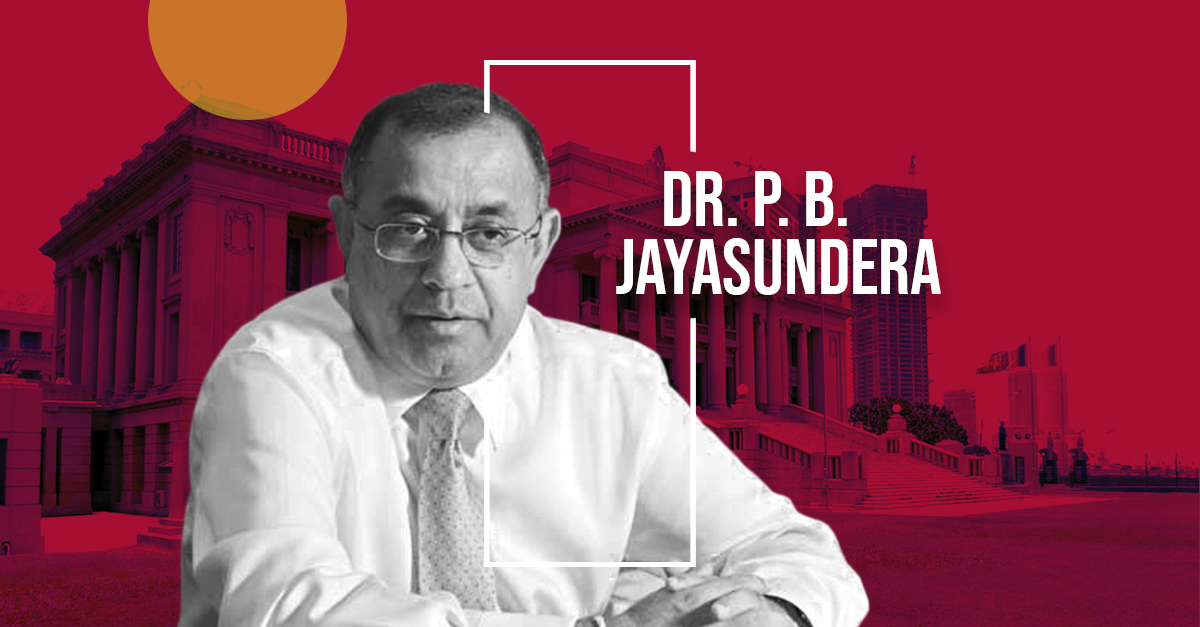
There is perhaps no one who knows Sri Lanka’s economy as well as Dr P. B. Jayasundera. An economist by profession, Jayasundera began his career at the Central Bank of Sri Lanka in 1974. After being seconded to the Ministry of Finance in 1990, he rose through the ranks to serve as Secretary to the Treasury under two former presidents — Chandrika Bandaranaike Kumaratunga and Mahinda Rajapakse. Today, he serves as Secretary to the President, appointed to the post following the 2019 Presidential Election.
Roar Media had some questions about the state of Sri Lanka’s economy, public finances and recovery in a COVID-19 world, which Dr Jayasundura graciously answered. His responses, which have been edited for clarity and brevity, are below.
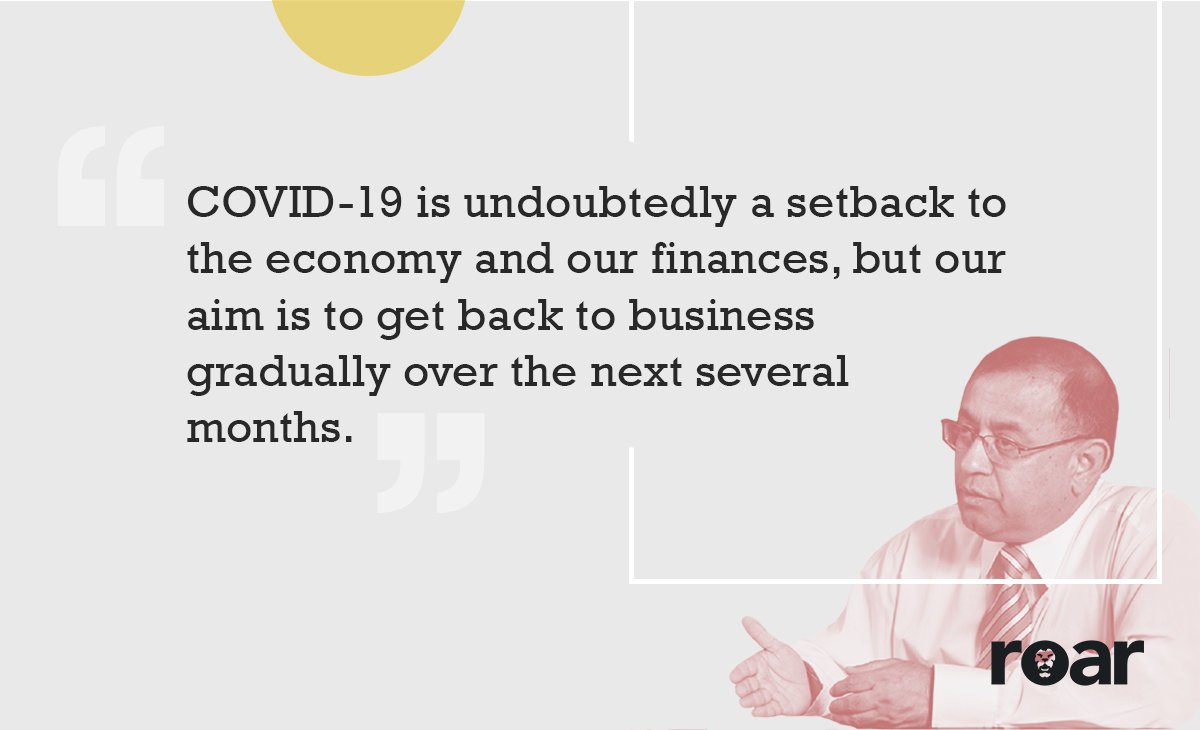
Q: As a steward of the economy, what is your vision for the economy for the next 18 months, taking into account the effects of COVID-19?
The government’s vision is to strike a balance between financial stability and containing the outbreak — while supporting hard-hit households and the economy. Our priorities include: i) containing the outbreak through improved health facilities, such as testing and patient care, while also promoting arrangements such as telecommuting and e-learning; ii) protecting daily income earners; iii) supporting hard-hit industries such as tea, tourism, construction, apparel, large plantations, and MSMEs; iv) identifying new sources of financing; and v) formulating a medium-term plan to support economic recovery, along with cautious reintegrating with global trade and finance, while consolidating local production and services.
Achieving food security is also a priority, which is why we have put in place a rapid food production programme involving recipients of Samurdhi families, households in rural and semi-urban areas, and smallholder farmers islandwide.
A revival of the construction sector will also have to take place, by undertaking construction activities, developing rural access roads, hospital facilities, storage capacity and affordable housing. These activities will provide avenues to re-employ a significant number of informal workers who may have lost their livelihoods.
Domestic manufacturers have also commenced manufacturing healthcare products, testing devices, masks, personal protective equipment (PPE), automated ICU beds, robots etc., in response to COVID-19 and we want to encourage them to pursue export opportunities, while promoting the use of the same locally. In the short term, we would like to expand our capacity to manufacture essential drugs locally and help manufacturers of essential healthcare products. In the medium term, we would like to see locally-manufactured substitutes for non-essential products.
Special attention is being paid to promote industries such as food processing, coconut oil, spices, domestic fertilizer, cement, steel, rubber products, chemicals, building materials, fabrics, and other industrial production activities where the private sector plays an important role.
All education institutions will be encouraged to make use of modern technologies to deliver education services. Such technologies could be used to train and/or retrain the workforce as well.
When the pandemic hit, the local research community and the general public responded by coming up with new inventions to support the health sector and strengthen agriculture, food security, distribution and communication systems, etc. This indicates that Sri Lanka has an innovative professional and business community, as well as an adaptable labour force. Therefore, all efforts must be made to harness these resources by supporting research and development activities and reducing bureaucratic constraints that have hindered innovation in the country.
Although the recovery of sectors which rely on external markets may take some time, we will do all we can to help these sectors recover as fast as possible. We have emphasised this for many years, but the time has come to seriously consider export product and market diversification, as Sri Lanka’s traditional exports and markets are inadequate to help us withstand the effects of a global crisis of this nature.
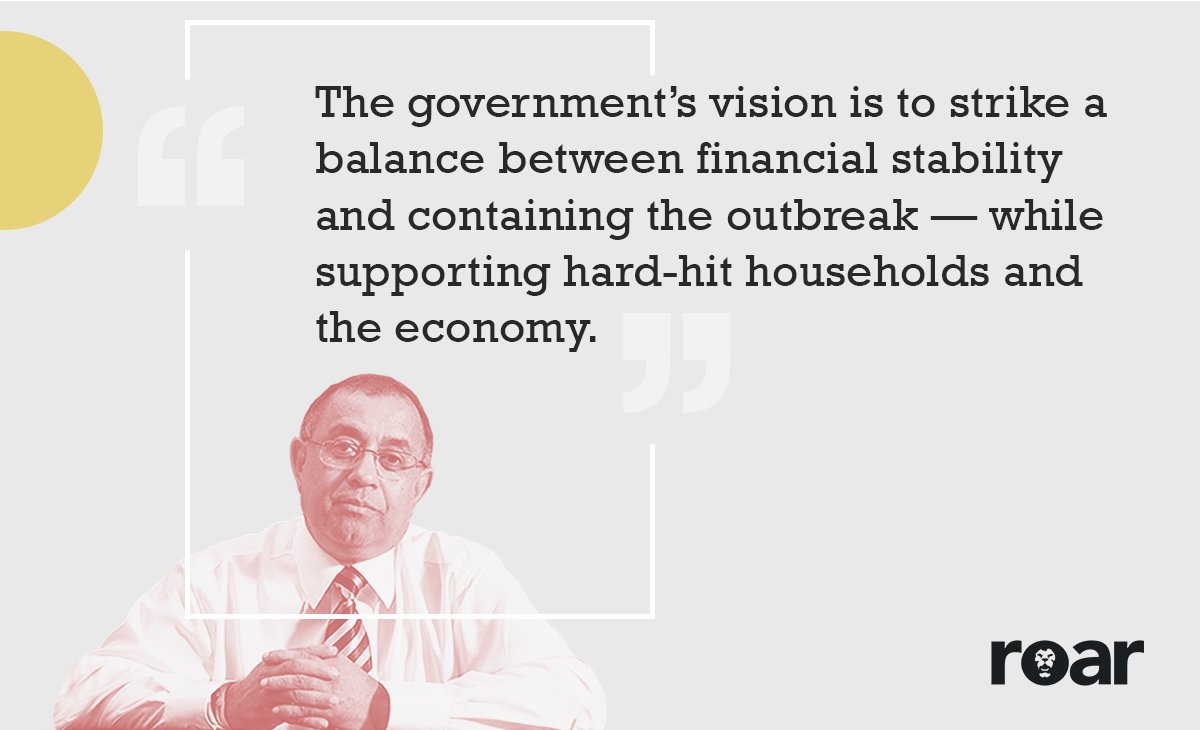
Q: There must have been a set of underlying assumptions you made when granting a tax relief package a few months ago. How have those assumptions changed, and are you still confident of meeting government revenue targets? Could you briefly elaborate your thoughts on this?
First, it is important to clarify that what was granted was not a tax relief package. The tax system at the time was very complex, did not provide the desired yield, and was distortionary. There was an urgent need to address these concerns and the President rightly gave priority to this. That is why the government announced a series of measures to re-engineer Sri Lanka’s tax policy framework with a view to creating a simple, transparent and efficient tax system that will promote self-compliance and easy tax administration — which will most likely include online tax administration sooner than later as well.
The new tax reforms are also a fulfilment of a pledge given in President Gotabaya Rajapaksa’s election manifesto. The reforms addressed the numerous problems stemming from the extreme complexity of the tax structure and its multiple taxes that had resulted in many distortions, corruption, irregularities, and violations of some basic taxation principles and norms. For instance, when you consider the ability to pay taxes, the VAT/NBT threshold at the time was Rs. 1 million. Clearly, that policy was poorly designed and hurt MSMEs a lot.
The removal of the Nation Building Tax (NBT) and the reduction of Value Added Tax (VAT) on the real economy to eight percent, while keeping the financial sector subject to 15 percent, made it favourable to the real economy. Small businesses have been exempted, thanks to the high threshold for VAT. Personal income tax has been targeted at those who can afford to pay it.
These policy measures are to be implemented with other key reform priorities, especially in the areas of public expenditure management, improvements in State-Owned Enterprises (SOEs), and improvements and simplification of administrative systems and procedures so that we can provide quality governance.
The government inherited an economy in bad shape. The fiscal deficit was almost eight percent of GDP, government debt stood at 80 percent of GDP, and there were huge unpaid bills, which amounted to around 1.5 percent of GDP. Therefore, a concerted effort will be taken to rectify this. Over the medium term, we hope to bring down the deficit to four percent of GDP.
COVID-19 is undoubtedly a setback to the economy and our finances, but our aim is to get back to business gradually over the next several months.
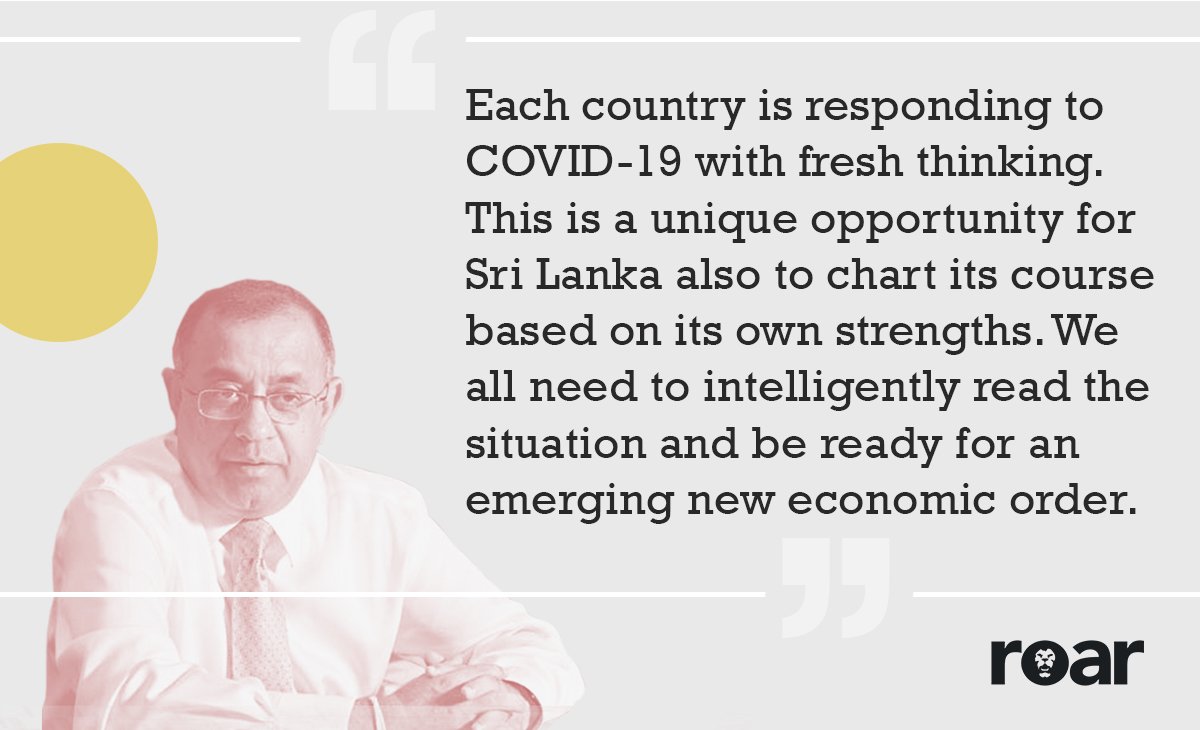
Q: In a bad economy, people look to the government to ramp up spending to stimulate aggregate demand. But Sri Lanka doesn’t have a lot of fiscal space to do so. What are your thoughts on this?
COVID19 is a global problem. One-hundred-and-ninety-five countries have been affected. Death rates are high. State governments in the US are demanding more funds. In an interview with Bloomberg, the Managing Director of the International Monetary Fund (IMF) indicated that the IMF will need more resources if COVID-19 continues. If that is so, imagine the situation of vulnerable developing countries. All over, the established private sector is lagging, while the public sector is leading at all levels. Traditional markets have failed, this is what we need to understand.
All countries need to create space to protect people. Yes, we have our fair share of problems and this is not the first time we have had to manage an 8-9 percent fiscal deficit. But I am convinced we will be able to return to a lower deficit. Remember, this is a country in which welfare and social security support systems through elderly payments, disability allowance systems, Samudhi etc., are available to people unable to afford it. Of course, now unemployed daily-wage earners must also be counted with these. But our public service delivery system on healthcare and field level public services carried out through divisional secretaries, district secretaries, and other government agencies have proved that our public service infrastructure is still effective.
Creating fiscal space requires us to re-profile public spending and regenerate government revenue sources and financing and investment avenues as well. Reallocating spending from capital expenditure to the COVID-19 response along with re-prioritising public investments based on the quality of spending would help minimise the fiscal impact, while we can tap into multilateral support to cover the foreign exchange component of the response package.
Each country is responding to COVID-19 with fresh thinking. This is a unique opportunity for Sri Lanka also to chart its course based on its own strengths. We all need to intelligently read the situation and be ready for an emerging new economic order in the world.
We believe that fiscal space will increase further when the real economy picks up. Imagine the potential of farm production if food, vegetable, fruits, dairy, fish, and small businesses in the north get going. Imagine the prospects for rice, grain, coconuts, spices, tropical fruits, quality vegetables — and the agro industrialisation of the same in our country. Imagine the prospects for renewable energy through wind power and solar. The potential is huge. In fact, that is how we can reduce import dependency and emerge as an export destination.
I’m optimistic that a new generation of entrepreneurs with innovative business models will emerge, supported by an innovative banking and finance sector. The post-COVID19 world can be a new market-economy driven by less transaction costs, and one where direct links between consumers and producers become commonplace and markets are made more efficient by technology. Sri Lanka, thanks to being responsive to innovation, business savvy, and technologically literate will adapt to this new economic order.

